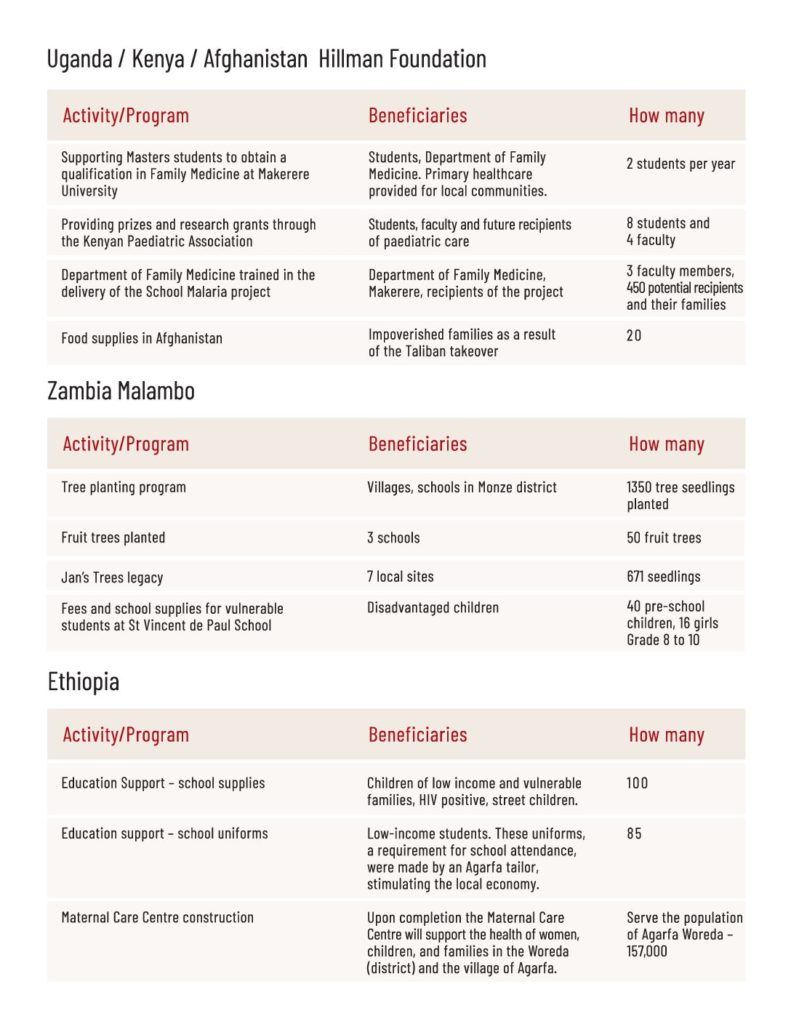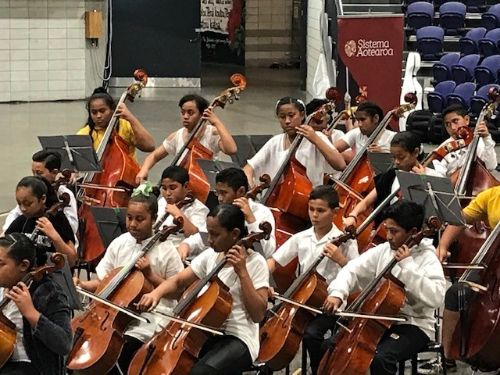





Chair Year End Report
October 31 st ,2022 to November 1 st , 2023
We have come to the end of another year for Rose Charities Canada with many achievements and “good news”. Our projects have carried on amidst global wars and conflicts, earthquakes, fires, floods and the
ever-encroaching impacts of climate change.
The need for humanitarian aid is widespread and as a result it is sometimes hard to know where to help.
As an organization we do step in for emergencies but we prefer to support communities in the long haul. For this reason, many of our projects have been operating over a long period of time with a great
track record and, moreover, they are well established with very positive outcomes for individuals and communities. This often results in a “ripple effect” where the small seed of a project flows out to the
wider community and future generations. For example, indigenous midwives in Guatemala are given skills to promote better outcomes in childbirth; their knowledge is then transferred to future midwives
and thence safer births.
Another example of this is in the planting of tree seedlings in Zambia which over time help to mitigate against erosion and drought bringing agricultural opportunities and food security to local communities.
In my report this year I have chosen to include the results(outputs) that most of our projects have indicated in their annual reports. I have done this because it demonstrates the wonderful scope and variety of activities the projects provide on budgets that are low in comparison to the big aid organizations. The activities can, more or less, be categorized into education, health and community development. However, they seem to offer much more in terms of broader impacts such as hope and
opportunity for the future.
It is also interesting to look at the numbers of lives benefiting from each project. Some of these numbers are large for a relatively small organization. For example, the development of a Maternal Care
Centre in Ethiopia will provide services to a community of 157,00 people. Or the production of a music video raising awareness of sexual violence towards girls in Uganda has likely reached thousands of
people. But numbers do not tell the whole story. We work from the premise that every life matters. Our understanding is that “If you concentrate on small, manageable steps you can cross unimaginable
distances” (Hick)
If you look at the outputs from Nepal you will see that nine girls were helped with their education. One of these women, married at a young age, had been unable to finish her schooling due to responsibilities
at home. The scholarship enabled her to complete her high school with the chance of lifting the family out of poverty. In fact, she obtained her certificate alongside her daughter!
In addition to individual successes, we also support whole schools – Stand Tall (200 students); Volset (250 students) and the indigenous Mayan school (37 students) in Guatemala. And then there are theenrichment programs in Ecuador, Haiti; health education workshops in Uganda with Grassroot Doctors; educational supplies; food security support and the list goes on.
When I look at the year end annual reports, I am truly impressed and inspired by the work of all our projects. And I know the board joins me in thanking everyone – volunteers, donors, supporters – who
have helped to make them a success.
With very best wishes for another productive year ahead!
Maggie Francis
Chair, Board of Directors
Rose Charities Canada
January 23rd, 2024

